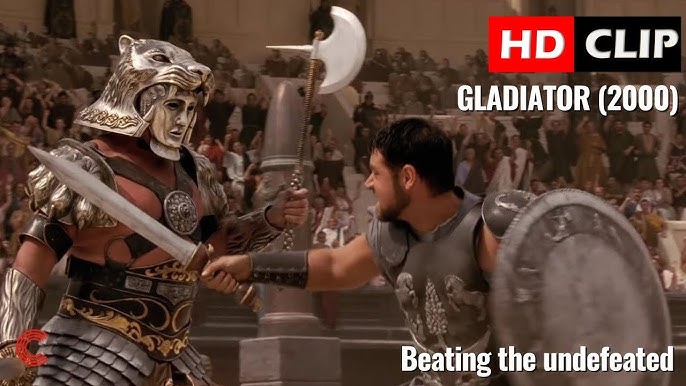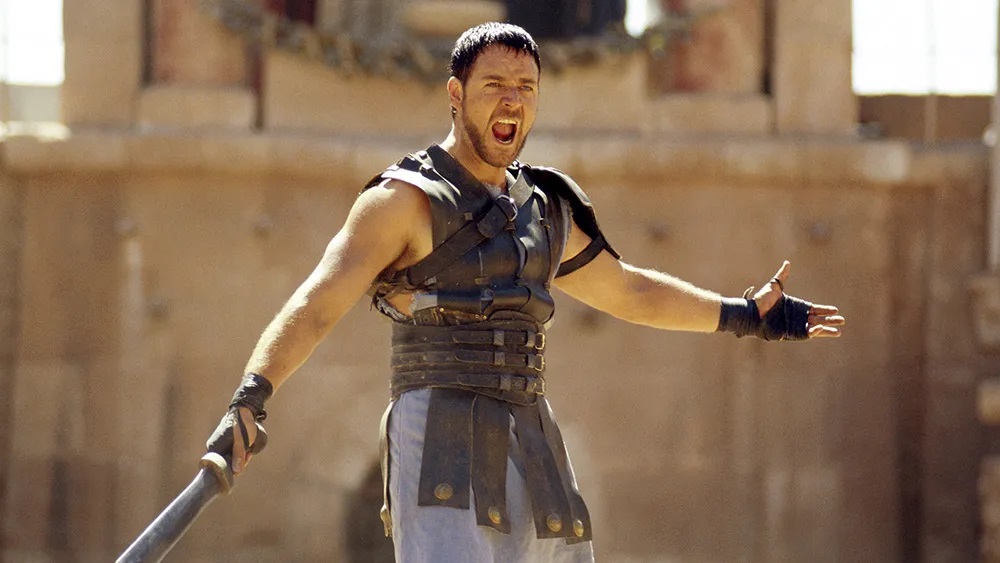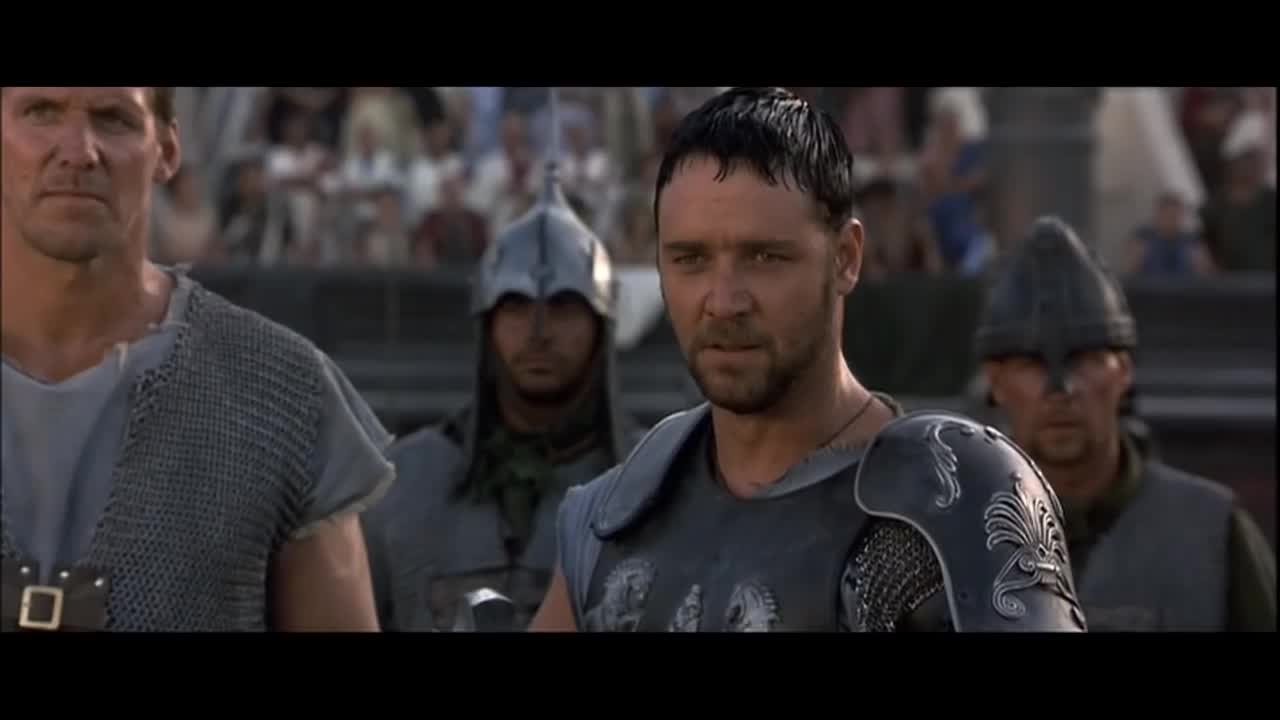🎬 Gladiator (2000)

🎬 Gladiator (2000): A Tale of Honor, Vengeance, and Redemption
Gladiator (2000), directed by Ridley Scott, is an epic historical drama that transcends time, bringing to life a story of betrayal, resilience, and unwavering courage. With its stunning visuals, stirring score, and unforgettable performances, this cinematic masterpiece continues to resonate as one of the greatest films of all time.

The story follows Maximus Decimus Meridius (Russell Crowe), a respected Roman general whose loyalty to Emperor Marcus Aurelius (Richard Harris) makes him a target for the Emperor’s ambitious son, Commodus (Joaquin Phoenix). After a treacherous betrayal, Maximus is left for dead, his family brutally murdered, and his life shattered. Stripped of his title and enslaved, he is forced into the brutal world of gladiatorial combat.
As a gladiator, Maximus rises through the ranks, becoming a symbol of hope and rebellion against the tyranny of Commodus. His journey is one of relentless determination, fueled by the desire to avenge his family and restore justice to Rome. The film masterfully explores themes of loyalty, honor, and the strength of the human spirit in the face of adversity.
Russell Crowe delivers a career-defining performance as Maximus, embodying both the ferocity of a warrior and the vulnerability of a grieving husband and father. His iconic line, “Are you not entertained?” has become a cultural touchstone, epitomizing the film’s emotional depth and intensity. Joaquin Phoenix is equally mesmerizing as Commodus, a complex villain driven by insecurity, jealousy, and an insatiable hunger for power.

The film’s visual grandeur is matched by its meticulous attention to historical detail. From the sprawling Colosseum battles to the intimate moments of reflection, Ridley Scott’s direction captures the essence of ancient Rome with breathtaking authenticity. The combat sequences are visceral and exhilarating, showcasing Maximus’s strategic prowess and indomitable spirit.
Hans Zimmer’s powerful score elevates the film to legendary status. Tracks like “Now We Are Free” and “The Battle” resonate with both triumph and tragedy, leaving a lasting impression that lingers long after the credits roll.
Gladiator is more than a tale of revenge; it is a profound exploration of the human condition. Maximus’s journey from a beloved general to a symbol of defiance encapsulates the timeless struggle for freedom and justice. The film’s emotional core lies in its ability to balance epic spectacle with deeply personal stakes, making every victory and loss resonate on a profound level.
With its compelling narrative, unforgettable characters, and stunning craftsmanship, Gladiator stands as a monument to the power of storytelling. Whether it’s your first viewing or your fiftieth, this cinematic classic never fails to inspire, entertain, and move audiences. Prepare to step into the arena and witness a legacy forged in honor and blood. 🗡️🛡️












